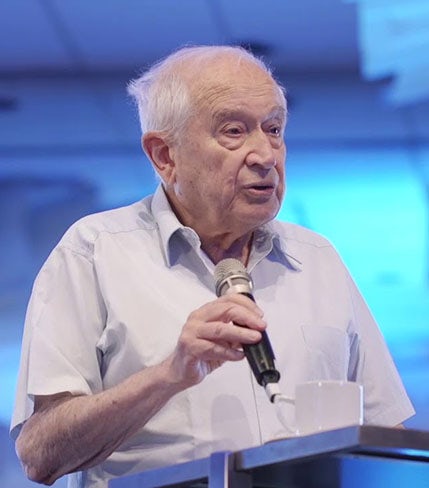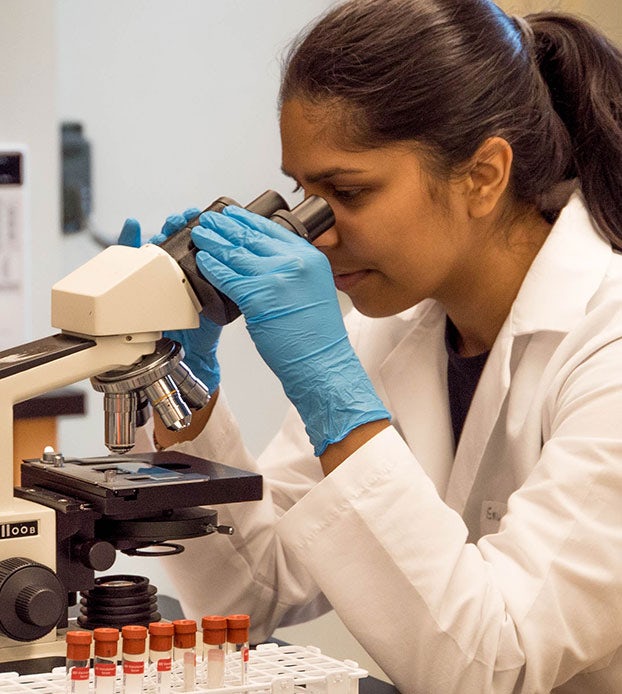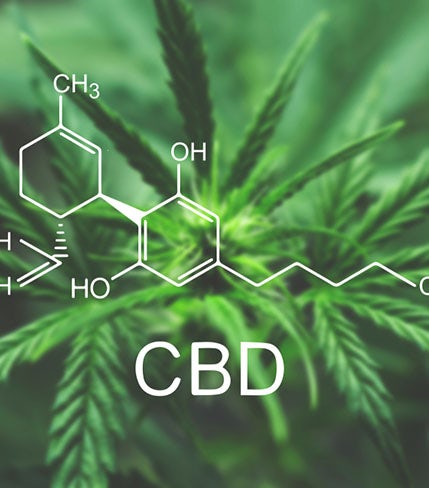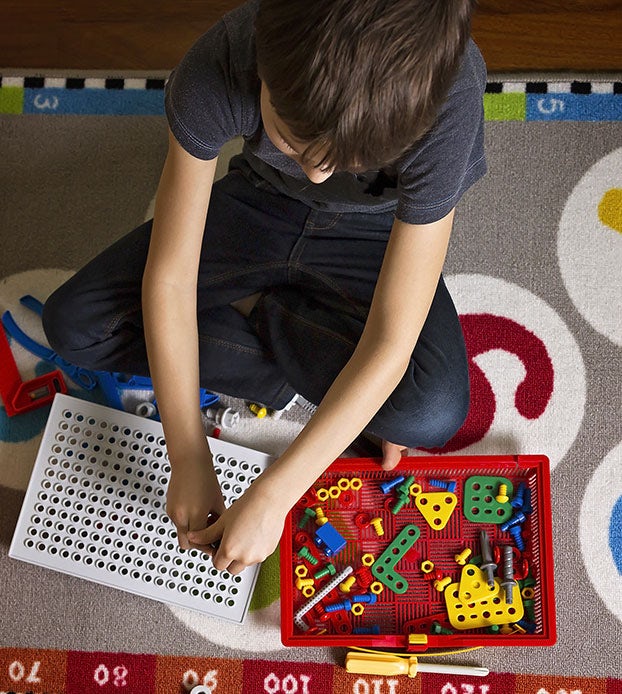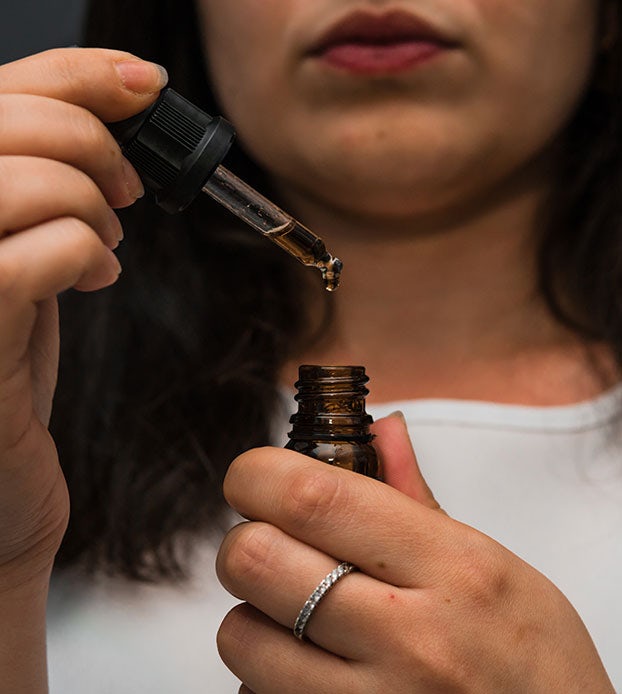For nearly 70% of Americans adults, drinking coffee is a daily ritual — and that’s not even counting all those who regularly drink caffeinated beverages of other sorts. And now, with cannabis legalization spreading across the country at a rapid clip, more people are starting to ask, how does weed interact with coffee? Or perhaps more accurately, how does caffeine interact with the intoxicating molecule in cannabis — THC?
How caffeine works
Caffeine is a central nervous system stimulant that boosts alertness. It works by way of blocking a neuromodulator called adenosine. Caffeine is an antagonist (blocker) of adenosine, which can cause drowsiness, among a variety of other functions.
But in addition to alertness, caffeine has a number of other effects that can be felt across the body. Too much caffeine can make you irritable or give you a case of the “jitters” as well as cause an upset stomach. It can speed up your heart rate, increase your blood pressure, and when taken in excess, cause diarrhea, among other side effects.
Caffeine can also be habit forming, and many heavy coffee drinkers find that they experience withdrawal symptoms when they cut down on their intake.
How THC works
THC mainly works by interacting with the endocannabinoid system, a system of receptors which modulates many of the body’s most important functions, ranging from sleep to nausea, hunger, and anxiety, to name just a few.
High-THC varieties of cannabis are frequently classified as anxiolytics (anti-anxiety), because they can have a deeply relaxing effect — though this depends on a variety of factors including the strength and type of the cannabis consumed, the method of consumption, and the tolerance of the user.
It can also have effects that are similar to stimulants — it can elevate your mood, boost creativity and spur long-winded conversations on any subject under the sun.
And marijuana also has side effects that can resemble those of caffeine — research has shown it can increase your heart rate and blood pressure, and can cause paranoia and anxiety. It can also be habit-forming, and has its own withdrawal symptoms.
How do THC and caffeine work together?
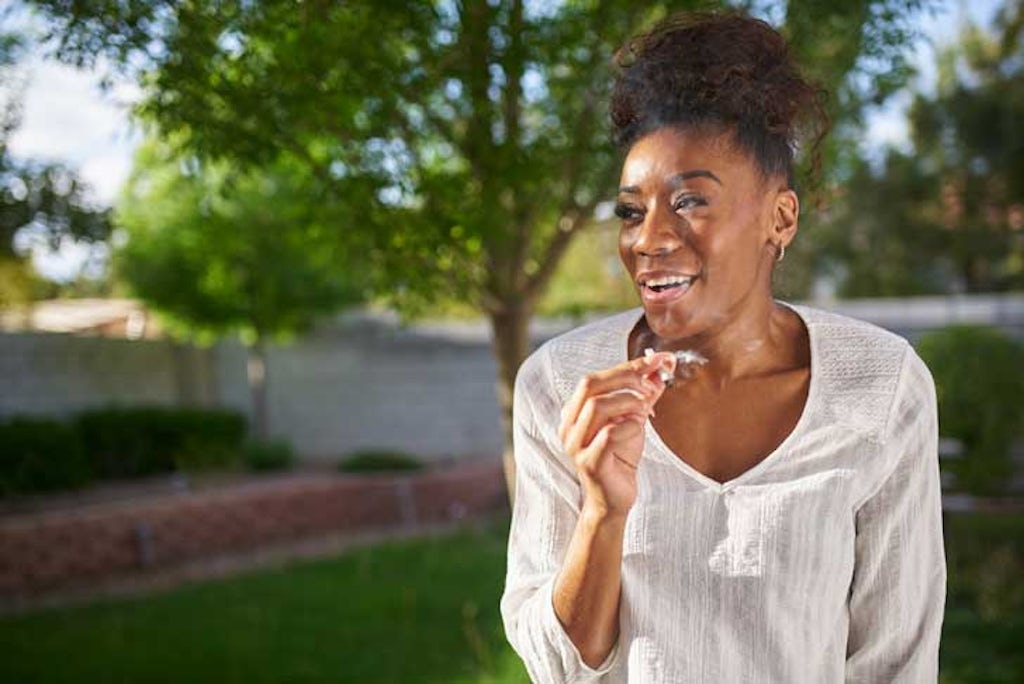
While there hasn’t been a massive amount of research into how THC and caffeine interact with one another, researchers have begun to pay closer attention in recent years. While there isn’t any evidence to show that combining marijuana and caffeine is a serious health risk, using the two in concert could potentially have some side effects.
A 2017 study carried out on mice found that the memory disruption effects of the cannabinoid receptor CB1 are prevented by counteracting adenosine, and that this “highlights a possibility to prevent cognitive side effects when therapeutic application of CB1R drugs is desired.” Or, in plain English, because caffeine also blocks the adenosine receptor, researchers theorized that this could mean it has the potential to offset the memory loss effects of cannabis.
This is contrary to a 2012 study on rodents which found that when taken along with a lower dose of THC, caffeine had the potential to negatively impact memory performance. In the study, the researchers noted that when rodents were given a small dose of THC in combination with caffeine, “memory performance was significantly impaired.”
The researchers concluded that caffeine “did not counteract memory deficits induced by THC but actually exacerbated them.”
Does it matter how much you take?
The effects of using cannabis and caffeine together may also depend heavily on the quantities used. For example, a 2014 study observed the amount of THC five squirrel monkeys administered to themselves after they were given a substance called MSX-3, which mimics the effects of caffeine. In low doses of the caffeine substitute, the monkeys gave themselves less THC, but when given a three-fold dose, the monkeys increased their self-administration of THC. This supports the idea that caffeine in small doses could be used to treat cannabis abuse or misuse. However, larger doses may be detrimental and exacerbate cannabis use patterns.
Researchers have also found evidence that caffeine and marijuana use can have an adverse effect on cigarette smokers, with smokers who are also heavy caffeine and marijuana users showing signs of higher availability of the receptors (nicotinic acetylcholine) with which nicotine interacts. This could mean that these individuals have more nicotine exposure than those who consume less caffeine and marijuana.
Do cannabis and caffeine counteract each other?
There hasn’t been any scientific evidence that caffeine can counteract the effects of THC or vice versa. That said, one study from 2018 found a linkage between caffeine consumption and the endocannabinoid system.
The study, which used humans and not rodents, was carried out by way of a three-month trial involving 47 habitual coffee drinkers in Finland. All of them were first required to abstain from coffee for one month, then consumed four cups a day for the second month, followed by eight cups in the final month.
The study found that “five metabolites of the endocannabinoid pathway were detected in the current study and serum levels of four significantly decreased with coffee intake particularly with eight cups/day.”
In other words, as the test participants increased their coffee consumption, their ECS activity decreased. More research is necessary to understand how this relates to cannabis.
There is some indication that cannabidiol (CBD) could counteract the effects of caffeine, because it increases brain adenosine levels by lowering adenosine reuptake, among other neurological effects. In addition, because research has shown that the activation of CB1 receptors by cannabinoids such as THC and CBD can induce sleep, this could indicate how marijuana could help offset the stimulant effects of caffeine.
What about the caffeine jitters? What if I need to come down a bit?
There is no scientific evidence that cannabis can directly counteract the caffeine jitters or cause its stimulating effects to cease, but marijuana is known for producing an often very relaxing effect — which is one of its main therapeutic and recreational benefits.
Anxiety is one of the most common conditions cannabis is used to treat, and research has shown promising evidence that CBD can be effective as a treatment for anxiety. At the same time, this is quite relative and varies from person to person — a cannabis dose that could relax one person might make someone else paranoid or anxious. But just as cannabis has the potential to induce sleep and reduce anxiety, it could also help you tone things down a bit if you’re feeling a bit speedy off that double espresso you just drank.
The bottom line
Caffeine and THC are two of the most commonly used drugs on Earth, and a fact of daily life for countless people worldwide. Both can produce a stimulating, happy effect that can perk you up and make it easier to face the day, come what may.
While there is some scientific evidence to consider, most of the research on the combined use of caffeine and cannabis has been performed on rodents, and there is scant research on human test subjects. How cannabis and caffeine affect you — both in combination or on their own — can vary from person to person and depend on a large number of factors including your own tolerance and history with both substances.
In the meantime, the classic advice applies: moderation is a good rule of thumb, be it coffee or cannabis — or both.
Sign up for bi-weekly updates, packed full of cannabis education, recipes, and tips. Your inbox will love it.

 Shop
Shop Support
Support
